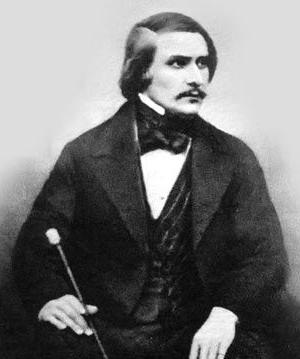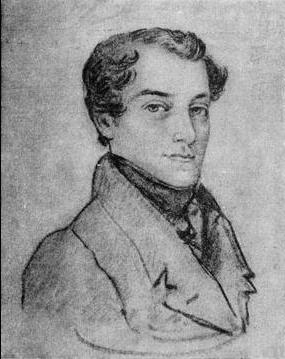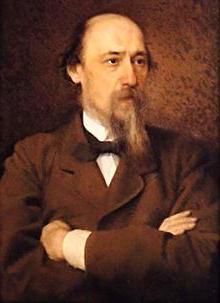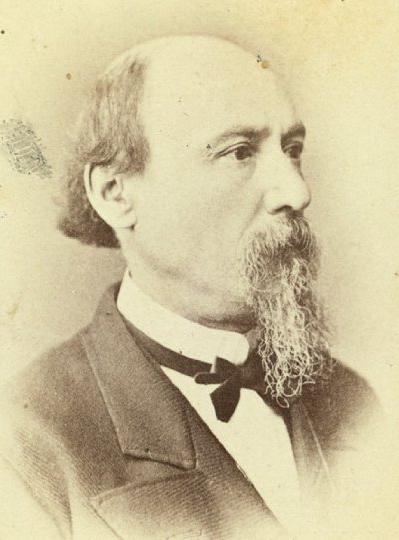The theme of poetry and the poet was addressed more than once by many great word artists, but in their works they revealed it in different ways.
Two directions in art
Two main trends in the question of how to understand the tasks facing art, were determined in the middle of the 19th century. Proponents of "pure art" believed that poetry was not in the depiction of reality. It consists in the grace of the subject and form of the poem. Representatives of this direction deliberately avoided the problems of reality and turned in their work to "eternal" topics.
Representatives of the so-called "democratic" direction took the opposite position. They relied on the experience of the Decembrist poets, Lermontov and Pushkin. Of course, Nekrasov also belonged to them. The work of N. A. Nekrasov is a vivid example of serving the Fatherland. Continuing the traditions of Lermontov and Pushkin, this poet constantly addressed the theme of poetry and poet throughout his journey. Many poems by Nekrasov are dedicated to her. In this article we note only the most famous and important of them.
Theme of poetry and poetry in the lyrics of Nekrasov's early years
Touching on this topic, already in the 1940s, Nekrasov was inclined to compare his Muse with a simple woman who left the people ("Yesterday, at six o'clock ..."). Nikolai Alekseevich thereby emphasized the nationality of all his work, which was realized by him in the early days. At the same time, he showed the difficulties that the poet had to face at the beginning of the journey. It is about Nekrasov’s struggle against journalistic persecution and censorship. Like a young peasant woman, his muse is "whipped up" and "scourged."
The poem "Muse"
In the poem "Muse", written after 4 years, the poet develops these estimates and comparisons. His mentor, alas, does not sing sweet-voiced songs. She does not teach harmony, does not use a pipe. The muse has a different look. Once again, the poet compares her with a peasant woman, but now it is more detailed. She sings in front of a smoky torch in a wretched hut. This peasant woman is "killed by a rug," "stooped by labor." However, the Muse of Nekrasov is not only likened to a rural toiler. She is also called the "companion of the sad poor." What is characteristic of this poem by Nekrasov is that his disposition for revenge is a character trait of the muse. Thus, the poet prepares a complex synthesis in the characterization of the miraculous “virgin”, a definition formulated a little later, in 1855, when he called it “the muse of revenge and sorrow”.
Two types of poets in a poem by Nekrasov
Nekrasov also reflects on the creator, in particular, in the work "Blessed is the Unkind Poet ...". This creation, created during the "dark seven years", is dedicated to the memory of N. V. Gogol (pictured below), who had just died. In it, contrary to censorship, the struggle for triumph in the literature of the "Gogol" direction is being waged. This poem reveals in a new way the theme of poetry and poet in the lyrics of Nekrasov. Nikolai Alekseevich sharply contrasts 2 types of poets: the “convict of the crowd” and the “non-malicious” word artist.

Some researchers of the work of the author we are interested in are convinced that he meant Zhukovsky, who deserves this epithet, as the "non-malignant poet". By “convict of the crowd,” the satirist Nekrasov means Gogol. The path in the literature of this writer was "thorny." Gogol was not "mercy" and rest from opponents. "Cries of bitterness" and "blasphemy" constantly haunted him. And most importantly - it was Nikolai Vasilievich, “arming the satire” with his mouth, who exposed the “vindictive lyre” of social vices. The preaching of love by "hatred" to evil, "by a hostile word of denial" was unusually close to Nekrasov. Like Nikolai Vasilievich (his portrait is presented below), Nikolai Alekseevich "loved hating." Nekrasov proclaimed his cherished idea that one who does not love anger and sadness does not like his homeland.
"Poet and citizen"
The main themes and ideas of Nekrasov’s lyrics were connected with one very important concept for Nikolai Alekseevich - “citizen”. The poet, reflecting on the artist-creator, creates a poem called "The Poet and the Citizen." The image of the Poet in him, he gave some of his own features, hesitations, doubts, although he sought, first of all, to typify this image. The figure of the Citizen is also distinguished by generality. He requires the Poet to respond to various conflicts of life, to actively serve the people, to protect the disadvantaged. The lines of Nikolai Alekseevich that do not need to be a Poet, but that a citizen are necessary, go back to Decembrist poetry. Let us recall, for example, the formula of K. F. Ryleyev (his portrait is presented below), which said that he was not a poet, but a citizen.

Nikolai Alekseevich develops this idea. The "conversation" and the drama of the work "Poet and Citizen" (Nekrasov) strengthened its dialogical form. However, she did not save from didacticism and some declarativeness, which are manifested in rhetorical questions, instructions, appeals, motives, as well as in the political vocabulary inherent in the Nekrasov era.
"To the poet"
The theme of poetry and poetry in the lyrics of Nekrasov goes through all his work. Nikolai Alekseevich, responding to disputes about what role the poet should play in society, which were conducted in 1870 in journalism, he creates the poem "In Memory of Schiller" ("Poet"). The problems and coloring of this work differ in many respects from previous poems about poetry, as the analysis of Nekrasov’s lyrics shows. Nikolai Alekseevich no longer deals with the theme of torment and suffering, does not connect the artist with the fate of the peasantry of the word. Nekrasov, whose poems are often devoted to the sufferings of ordinary people, is limited to what creates in this poem the ideal image of the Poet.
Who is the ideal image of the Poet for Nekrasov?
For him, he is Schiller (a portrait of him is presented below).
The creativity, thought, life of this great German poet is beautiful for Nekrasov mainly because he sees in them the manifestation of an artist-judge who is guided by the highest principles of beauty and morality. The author emphasizes in the heroic deed of the hero exalted and beautiful. He is equal in his faithful service to freedom of God. The poet is armed with "heavenly thunders." He stands above bankers and kings, and the "magic torch", raised by him as a "lamp of reason", already familiar to us, illuminates the path of people, brings them to light.
His age and people need a Poet. He serves them, not trying to shut himself up in art divorced from life. The singer calls his muse only when the "types of good and love" are clear in his soul. According to the author, such a creator can and should remind people of "high calling", and also, which is especially important for Nekrasov now, to bring "harmony" into their feelings and deeds, guided by the high ideal of beauty.
The poem "Elegy"

The theme of poetry and poetry in the lyrics of Nekrasov is also revealed in the poem Elegy. This is perhaps the most dramatically expressive and deep poem on this subject in the work of the author we are interested in. Nikolai Alekseevich, comprehending the post-reform years, draws a disappointing conclusion that the theme of "people's suffering" has not lost its urgency. The fate of the peasants, the share of the people, remains unbearable and painful. As before, the "tunes of rural maidens" are full of sorrow and sadness. The originality of the lyrics of Nekrasov throughout his work lies in depicting the suffering of the people. However, Nikolai Alekseevich in "Elegy" significantly expands the picture of the hardships of peasants. He speaks, using the plural, of the disasters of various "peoples", implying the triumph of reaction in the states neighboring Russia. Here people are experiencing at that time "the dawnless night" (the definition given in the poem "Smiley honest ..." written in the same year).

Today Nekrasov’s poems are known and loved by many. The largest and most famous of them is "Who should live well in Russia?" After reading even one of this work from the entire work of the poet, one can understand how much the Russian people loved Nikolai Alekseevich. However, not only Nekrasov’s poems reflect concern for him. The fate of the people excite the author in many other works. Nikolai Alekseevich sees the poet’s highest mission as serving him wholeheartedly. In Elegy, Nekrasov seems to summarize his work, saying: "I dedicated the lyre to my people." One cannot disagree with this.